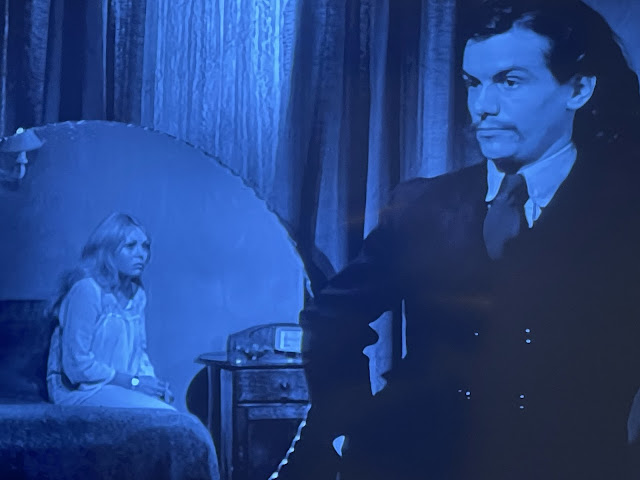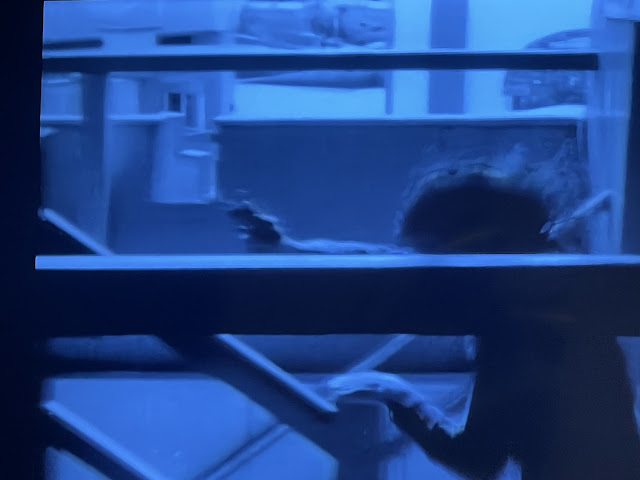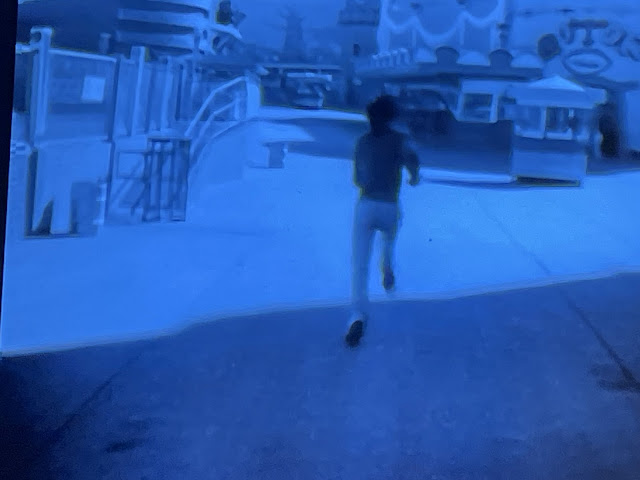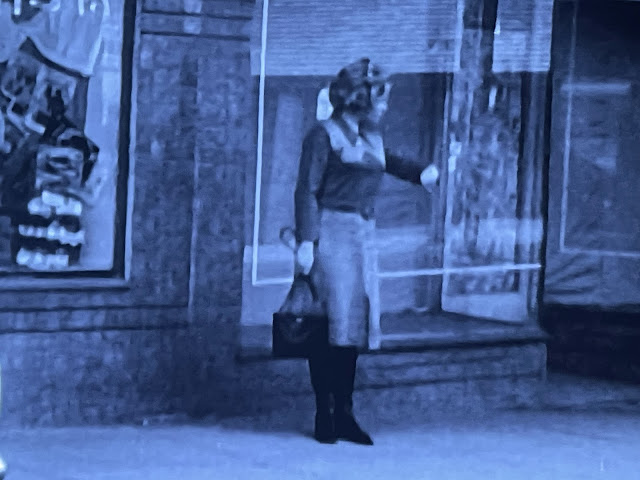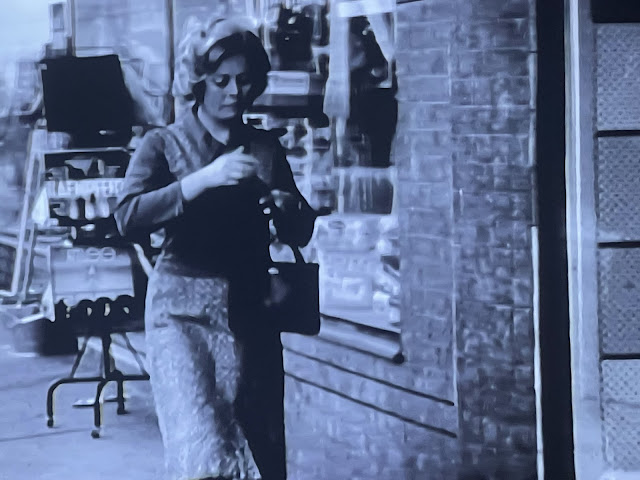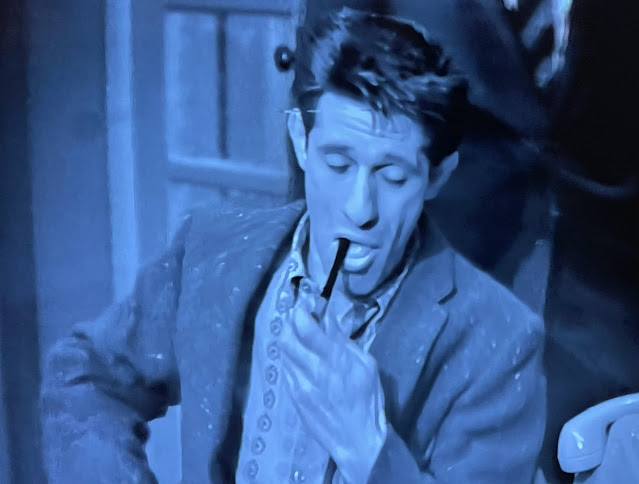This week I listened to the audible version of Martyn Ware's
Electronically Yours, Vol. 1. As you know, Ware was the prime mover in the Human League in its first incarnation and then went on to be a central force in Heaven 17. The second Human League album, in particular, is one of my favourite records ever, it's called
Travelogue and I agree with Ware's own assessment of it - that it sounded like nothing else when it came out and it still doesn't sound dated. It's a remarkable record.
I was most interested in the early stuff here - particularly the HL material - though I was also disappointed by a lot of the approach. I couldn't help feeling that Ware really needed an editor, which I'm pretty sure he didn't have (someone to elicit more detail on some things and less blah on others). Ware was there, so he doesn't seem to appreciate what we would want to know. For instance, he goes into great detail about 'Marianne' which is, you know, an ok song, but says completely nothing at all about 'The Black Hit of Space', which is, of course, an amazing work of genius. He barely touches on 'Empire State Human' which is extraordinary, remarkable, and immense (actually, he might not even mention it, I can't remember). The rise of the HL is unbelievably fast and things like the release of their first record is practically an afterthought. I'm pretty sure, too, that he gets important things wrong - like John Lydon's review of 'Being Boiled' in the NME which I'm 1000% sure was two words: 'trendy hippies' but Ware says it was 'fucking hippies', in fact, he says it twice.
Update 10 July: It also occurred to me how extremely little Ware says about '(We Don't Need This) Fascist Groove Thang' which was a revelation and an amazing statement of intent for Heaven 17 - it was their first single. The bass playing of John Wilson (inc. a hell of a solo) was a remarkable feature of this single and how Ware, Marsh and Gregory came across Wilson is entirely avoided, I am not even sure he's discussed at all. That's all pretty weird, right? It took a lot of gumption to launch H17 the way they did, and a lot was made of Wilson, in particular, at that point. Wilson appears in group photos etc (I'd never seen him before but I gather he's here second from right) and yet, not a mention.
Of course it could be that I stopped listening/paying attention for a while and/or that I accidentally skipped a bit (I definitely skipped one section about football, so maybe he segued into discussing John Wilson then as well) so who knows?
Ware is a very dedicated socialist, which I approve of, and a football fan, which is a bore. He really likes art and values creativity and adventurousness which I admire. His book is full of the usual crapola about hot women and drinking too much which is a drag but apparently necessary in books like this. Simultaneously to H17 he became an extraordinarily successful record producer though he gives us precisely no information about what a record producer does or is (I suppose I'm fine with that). OK I think I've about said all there is to say about this. By the way it's hard to be sure whether he's providing his own interjections reading this book for audible or whether the interjections are in the original book, I guess I'll never know.
Meanwhile I've been watching a lot of another Crawfords show made in Melbourne in 1984-5, called
Special Squad. It's a peculiar production which apparently sought a certain measure of gritty realism. In one sense it might as well be
Homicide '84; it's three men in an elite section of the police force, always in car chases, each episode a neat solving of crime with a lot of the usual moralistic elements (no crim
ever gets away). One odd aspect is that the first episode absolutely does not even slightly bother to introduce you to the police characters - you are just thrown in at the deep end. I'm still confused about who these three men are.
What else does it have? A lot of interesting actors. Red Symons as a terrorist (I'm not even sure he has a speaking role, but it's him) and Frankie J. Holden as an undercover cop, for instance. Norman Coburn is a corrupt cop in another episode (see below). The storylines are, on the whole, not magnificent* and if it wasn't for the intriguing mid-80s technology (phones and computers in cars!) the above mentioned actors and the locations I wouldn't really be bothering, I suspect. Oh, but every episode does end with someone making a lame joke** and the frame freezing, which is pretty amazing to see in the wild.
Last night my mother and I went to see Kuolleet Lehdet, a low-key Finnish film which surprised me no end by including Maustetytöt in one scene.
Oddly enough I knew they were in a film because I saw this poster a few weeks ago on the Maustetytöt fan club facebook group but I didn't realise that this was the same film I had already bought tickets to. Just 'cause I'm dumb.
They don't have lines or anything just a crucial moment in the action, where they convince one of the main characters to stop drinking by dint of their extremely depressing song. It's pretty cool.
Overall the film is probably worth it. I am still thinking about it.
* to be fair, I haven't been paying 100% attention
** or just a pointed comment.


